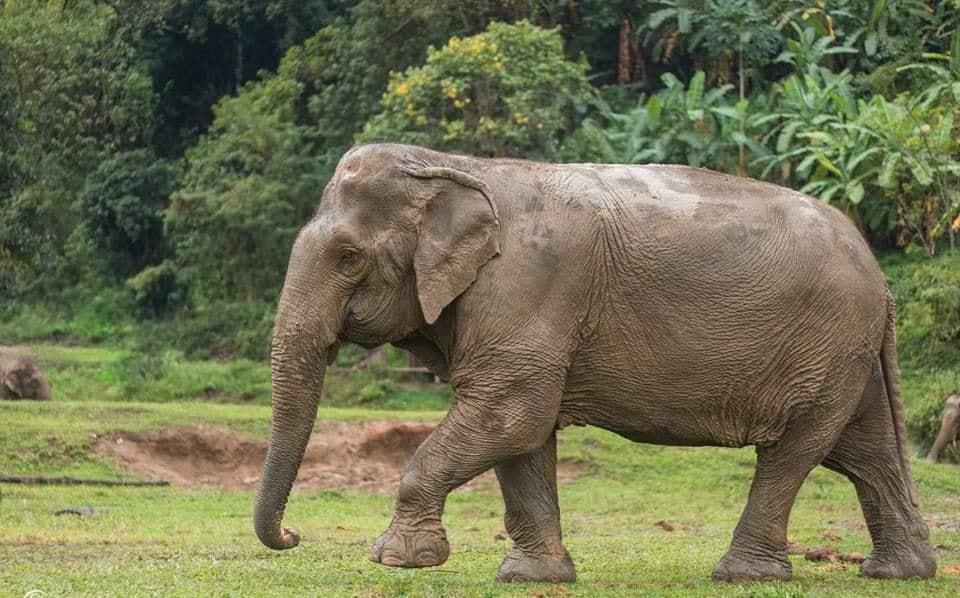Jungle Habitat turned into a Warner Brothers owned pressure thru safari kind park in West Milford that existed from 1972-seventy six; the park contained 1,500 animals consisting of monkeys, elephants, lions, and tigers. On July eight, 1974, a sixty-eight 12 months old visitor from Long Island was grabbed with the aid of the trunk of a toddler elephant which then slammed her in opposition to a fence and bit her. Elizabeth Ennis turned into later awarded $200,000 using a court, in keeping with the Facebook institution, This Day in New Jersey History.
In an account in the New York Times, she claimed the elephant bit her on her proper hand and, due to the trauma incurred by way of being slammed into the fence, she had persistent pain in her true facet that prevented her from lifting heavy items; her husband was offered $five,000 for lack of companionship. It becomes no longer the primary time the park was in trouble, but; rapidly after the park opened in 1972, a 26 yr old Israeli tourist, Abraham Levy, changed into using via the park while he was attacked by a lion struggling lacerations to his face and shoulder.
According to the internet site Weird NJ, Levy later took responsibility for the incident. There changed into also an amorous male rhinoceros that idea a Mercedes-Benz turned into a female rhino and mounted the automobile, attempting to mate with it. There became a lawsuit for the damage completed to the car and subjecting the kids inside the automobile to tried rhino intercourse. Another continual trouble for the park was close to steady rumors of escaped animals. At least one of these reports turned into authentic: wolves escaped but were captured without incident.
Citizens of West Milford have stated other animal sightings; however, the reports of unfastened baboons, emus were now not shown. The animals also had a bent to damage the vehicles that passed through; an e-museum for the park says that there had been tigers that enjoyed biting (and popping) car tires and monkeys that liked to tear antennas off of motors.

The park closed in 1976 after nearby residents voted down a variance that might have allowed the park to increase. There are rumors that many animals have been set loose while the park closed, again, being noticed with the aid of locals, but those also were never shown. What changed into showed, however, was the mound of animal carcasses left behind.
According to Weird NJ, the pile grew to 30 animals, together with an elephant, a camel, zebras, and bison. The corpses had been left there from October of 1976, while the park closed, to April of 1977. The land was purchased by the country in 1988 and is now a park. However, sightings of non-indigenous animals within the location are nonetheless mentioned.
New Jersey is on the verge of turning into the second kingdom to ban the importation, possession, and sale of African large-sport “trophy animals” threatened with extinction. Legislation that restricts the trafficking of African species together with elephants, leopards, lions, and rhinos, as well as tigers, cheetahs, pangolins, marine turtles, or rays, become permitted Thursday overwhelmingly, as lawmakers concurred with adjustments advocated using Gov. Chris Christie in a May 2 conditional veto.
The ban might not apply retroactively to animal parts already possessed in New Jersey. Still, the law intends to reduce the envisioned 126,000 trophy animals imported into the United States each yr. “Trophy hunters, live out of New Jersey,” stated nation Sen. Raymond Lesniak, D-Union. CHRISTIE APPROVES THE ‘CECIL THE LION’ LAW BANNING BIG-GAME TROPHY IMPORTS TO NJ. Assemblyman Tim Eustace, D-Bergen, said he visits Kenya regularly because his son began a task 14 years in the past building colleges in the united states of America. He said the decrease in the natural world has been sizeable.
“The Kenyan economic system relies upon on stay natural world, now not dead wildlife. People come from around the world to do safaris in Kenya and Tanzania and many African nations, and the sector feeds humans by going as travelers,” Eustace stated. “The extra lions we kill, the more rhinos we kill, the more elephants we kill, the less the one’s human beings can feed themselves.” Violators could be a situation to a civil penalty of not much less than $two hundred and not extra than $1,000 for the primary offense, and now not less than $500 and not more than $3,000 for every subsequent violation. There can also be crook penalties, along with 1/3-degree crimes for sales of $500 or more.
Ninety-six elephants are killed an afternoon in Africa, amounting to 35,000 a 12 months, and that they’re poached faster than they’re being born, said Jen Samuel, president of Elephants DC. She stated there are most effective an estimated 20,000 lions left in Africa. “So with New Jersey taking the movement to protect nine endangered species today, it suggests it is the leader inside the worldwide movement to stop endangered species from extinction while we nonetheless can,” Samuel said. “It’s surely unpardonable in this day and age that we can’t get our Ya-Ya’s in other methods,” said Asher Jay of National Geographic. “We have the technology. We’re imagined to be innovators. We’re imagined to be wise as a species.”


![Discovering the Charm of Post House Inn: A Memorable Stay in the Heart of [Location] 3 Discovering the Charm of Post House Inn: A Memorable Stay in the Heart of [Location]](https://aws.wideinfo.org/getawayline.com/wp-content/uploads/2024/01/23152340/Post-House-Inn-Exterior-768x521-1-75x75.jpg)













![Discovering the Charm of Post House Inn: A Memorable Stay in the Heart of [Location] 17 Discovering the Charm of Post House Inn: A Memorable Stay in the Heart of [Location]](https://aws.wideinfo.org/getawayline.com/wp-content/uploads/2024/01/23152340/Post-House-Inn-Exterior-768x521-1-120x86.jpg)



